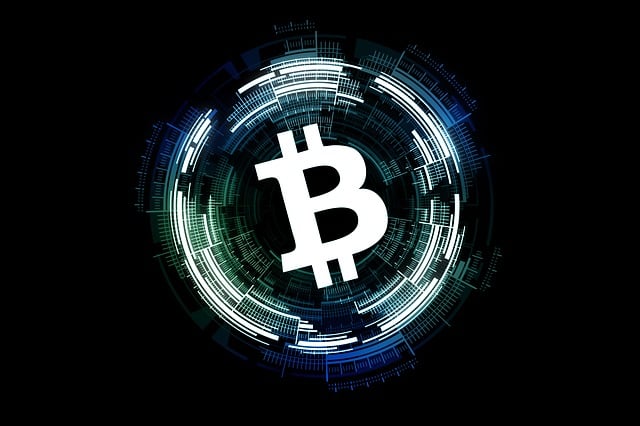Geopolitical tensions severely disrupt traditional financial markets but have a unique effect on cryptocurrencies, which remain resilient due to their decentralized nature. As global conflicts escalate, investors view crypto as a digital safe haven, driving up demand for coins like Bitcoin and stablecoins. While this offers opportunities, it also presents challenges through heightened regulatory scrutiny and international transaction difficulties. Geopolitical tensions significantly impact cryptocurrency markets, causing volatility and shifting investor sentiment. Regulatory changes, cross-border restrictions, and increased oversight add complexity, affecting DeFi and NFTs. Decentralization, a key aspect of blockchain technology, shields crypto from sudden policy changes and minimizes the effects of geopolitical sanctions, promising stability in an ever-changing global landscape.
In an era defined by escalating geopolitical tensions, understanding the resilience of cryptocurrencies amidst global uncertainties is more vital than ever. This article delves into the intricate relationship between geopolitics and digital currencies. We explore how political conflicts, sanctions, and trade disputes significantly influence cryptocurrency markets worldwide.
Through case studies and regulatory analysis, we uncover strategies for navigating volatility while examining decentralization as a potential shield against the growing impact of geopolitical tensions on crypto’s stability.
- Understanding Crypto's Resilience Amidst Geopolitical Uncertainty
- The Global Impact of Political Tensions on Digital Currencies
- How Sanctions and Trade Disputes Affect Cryptocurrency Markets
- Case Studies: Geo-political Tensions and Crypto Volatility
- Regulatory Changes: A Double-Edged Sword for Cryptocurrencies
- Exploring Decentralization as a Defense Against Geopolitical Risks
Understanding Crypto's Resilience Amidst Geopolitical Uncertainty
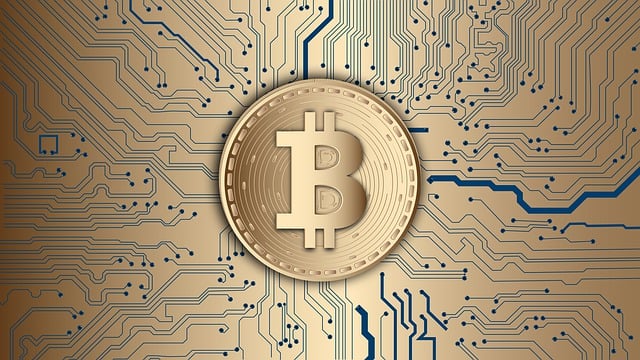
In the volatile realm of geopolitics, tensions and conflicts often stir markets, causing traditional investments to fluctuate and sometimes falter. However, cryptocurrencies have shown remarkable resilience during such periods of uncertainty. Despite their relatively short history, crypto assets have demonstrated an ability to withstand—and even thrive in—the face of global geopolitical challenges. This is largely due to their decentralized nature, which removes them from the direct control of any single government or financial institution.
The impact of geopolitical tensions on traditional markets has often led investors to seek refuge in safe-haven assets like gold. Similarly, cryptocurrencies have emerged as a new class of digital safe haven. As global conflicts escalate, crypto’s global reach and inherent security features entice investors looking for an alternative to volatile fiat currencies or geo-politically sensitive financial instruments. This trend has been evident during periods of heightened geopolitical tensions worldwide, highlighting the potential role of blockchain technology in navigating uncertain times ahead.
The Global Impact of Political Tensions on Digital Currencies

Geopolitical tensions around the globe have a significant impact on the world of digital currencies, also known as cryptocurrencies or crypto. When countries face political instability or international disputes, it often leads to increased volatility in the crypto market. Investors tend to view digital currencies as a hedge against economic uncertainty and geopolitical risks, which can drive up demand for certain coins during times of tension. For instance, when nations are at odds, traditional financial systems may become less reliable, prompting investors to seek alternative assets like Bitcoin or stablecoins.
These tensions can create both opportunities and challenges. On one hand, they stimulate interest in crypto as a potential safe haven asset. On the other, they may lead to increased regulatory scrutiny and restrictions on cryptocurrency trading. Nations often respond to geopolitical risks by tightening controls over financial markets, which can impact the ease of conducting crypto transactions and even influence coin values. As such, global political dynamics play a pivotal role in shaping the trajectory and adoption rates of digital currencies worldwide.
How Sanctions and Trade Disputes Affect Cryptocurrency Markets

Geopolitical tensions and associated sanctions or trade disputes can significantly disrupt cryptocurrency markets. When countries impose economic restrictions on one another, it often leads to reduced liquidity and increased volatility in crypto trading pairs involving affected nations’ currencies. Investors tend to move their funds to more stable assets during uncertain periods, temporarily depleting the market depth of cryptocurrencies.
These measures can also impact the overall sentiment towards digital assets. Sanctions may hinder international transactions, making it harder for cryptocurrency exchanges to operate smoothly. As a result, traders might face difficulties in buying or selling certain crypto assets, causing price fluctuations and potential losses. The interconnected nature of global financial systems and the growing influence of cryptocurrencies mean that geopolitical tensions can quickly reverberate through digital markets, creating a complex web of challenges for investors and market participants alike.
Case Studies: Geo-political Tensions and Crypto Volatility
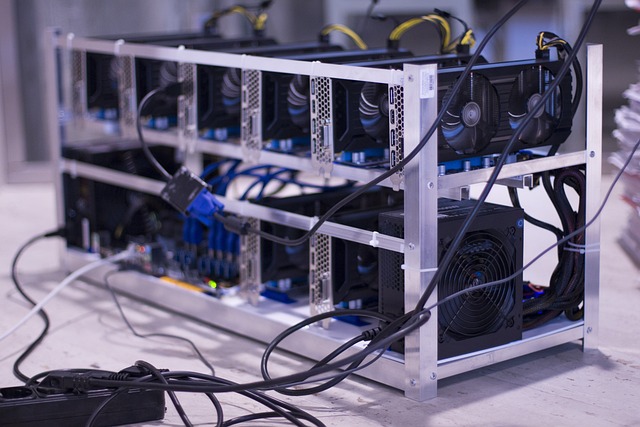
The intricate relationship between geopolitical tensions and cryptocurrency markets is a fascinating case study in financial volatility. When global political conflicts escalate, it often leads to significant ripples in the crypto space, as investors become increasingly uncertain about future economic landscapes. Take, for instance, the recent surge in tensions between countries X and Y, which sparked a rapid decline in the value of several major cryptocurrencies. This event highlighted how geopolitical instability can serve as a catalyst for crypto market downturns, as traders often prefer to park their funds in safer assets during turbulent times.
The impact of these tensions on decentralized finance (DeFi) and non-fungible tokens (NFTs) is equally profound. Geopolitical disruptions can lead to regulatory changes, cross-border restrictions, and increased scrutiny, all of which can affect the accessibility and liquidity of crypto assets. Case in point: Country Z’s new sanctions against certain cryptocurrencies have made transactions more complex, impacting both DeFi protocols and NFT marketplaces that rely on global participation. As a result, investors are left to navigate an ever-changing regulatory environment, further complicating their strategies and adding another layer of volatility to the already dynamic crypto market.
Regulatory Changes: A Double-Edged Sword for Cryptocurrencies
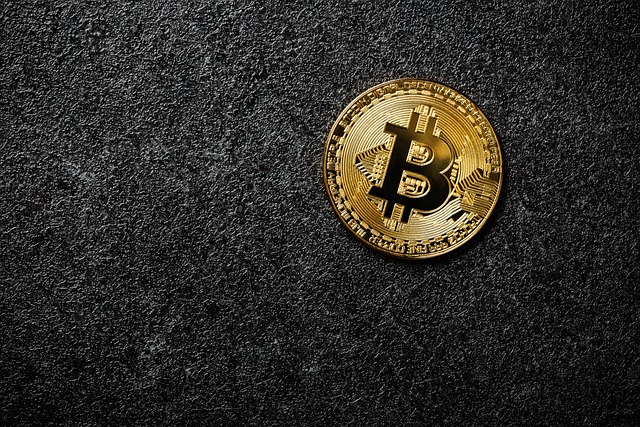
Regulatory changes in the cryptocurrency space often present a complex picture, serving as both opportunities and challenges for digital assets. Geopolitical tensions have significantly impacted the global crypto market, with governments and central banks worldwide taking a more active role in shaping its future. While increased regulation can provide stability and legitimacy to cryptocurrencies, it also poses risks for their volatile nature.
On one hand, regulatory clarity is crucial for mainstream adoption, attracting institutional investors, and fostering trust among users. Many countries are now introducing legislation to combat money laundering, terrorist financing, and other illicit activities associated with crypto. However, over-regulation or sudden policy shifts can lead to market uncertainty, affecting price stability and investor confidence, especially in a highly dynamic environment like the cryptocurrency market.
Exploring Decentralization as a Defense Against Geopolitical Risks
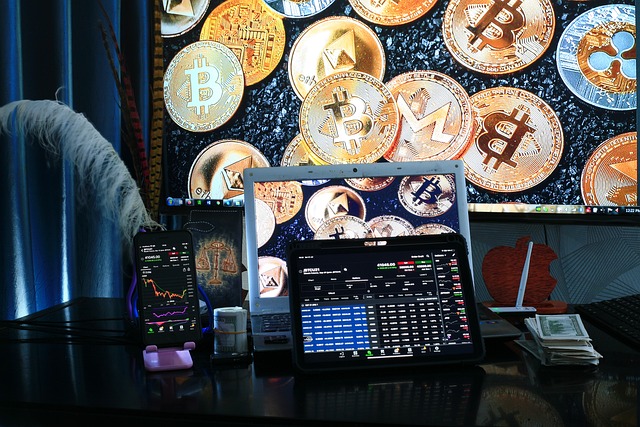
In the realm of cryptocurrency, decentralization stands as a cornerstone concept offering a unique defense mechanism against escalating geopolitical risks that often manifest as regulatory crackdowns or even outright bans. Unlike traditional financial systems centered around centralized authorities, blockchain networks are designed to operate on a distributed ledger technology, ensuring no single entity holds control over the entire network. This very nature of decentralization makes crypto less vulnerable to sudden changes in government policies or international relations—geopolitical tensions that can significantly impact traditional markets.
When geopolitical conflicts arise, targeting centralized institutions becomes a common strategy, as seen in various instances worldwide. Cryptocurrencies, by their decentralized essence, shield users from such direct attacks on financial infrastructure. Moreover, the global nature of blockchain technology allows for peer-to-peer transactions, reducing the reliance on intermediaries and, consequently, minimizing the impact of geopolitical sanctions or restrictions. As crypto continues to evolve, its inherent decentralization may prove to be a robust defense against potential shocks caused by ever-changing geopolitical dynamics.
Geopolitical tensions have significantly influenced the volatile nature of cryptocurrency markets, as evidenced by various case studies. While these tensions can lead to short-term market disruptions, the resilience and decentralized nature of cryptocurrencies offer a unique defense against such risks. As regulatory changes continue to evolve, understanding how geopolitical uncertainties impact crypto is crucial for investors and policymakers alike. Navigating these challenges presents an opportunity to shape a more robust and inclusive digital currency ecosystem.
